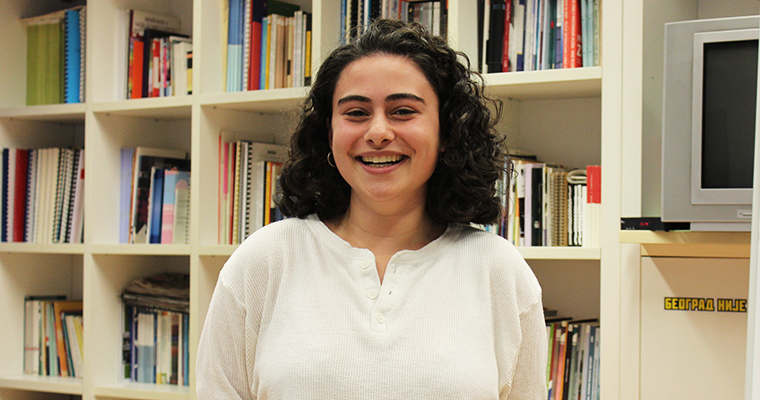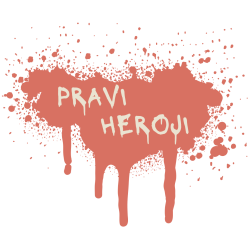The Consequences of an Interview
They started with Serbia’s EU accession, and discussed topics ranging from Kosovo bilateral agreement to EU accession funds. Brnabić did her best to paint Serbia as a righteous country that is committed to a comprehensive approach to the Kosovo agreement, which she claims will be rife with reforms, prosperity, and human rights. Sebastian then asked about EU accession funds, claiming that Serbia has already received “hundreds of millions”, which Brnabić denies, and expresses they are receiving “much less than that”, as a graphic appears on the screen informing viewers that Serbia is in fact receiving €200 million each year.
This discredits Brnabić early in the interview, which is certainly in line with Sebastian’s ‘no nonsense’ style.
The interview progressed into a discussion of broader society and institutional structures. Sebastian was less prepared to discuss the specifics of issues like war criminals in Serbia. He did, however, ask very tough questions that clearly frustrated the Prime Minister, but there were several missed opportunities to go deeper.
Sebastian criticized Serbian officials for condoning war crimes and allowing war criminals an esteemed position in society, using Vladimir Lazaravić, Nikola Šainović, and Vojislav Šešelj as examples of this. Brnabić’s response was calculated and provocative, “what do you want me to do with these people? If they were convicted, served their sentence, and released, do you want us to lock them up in Serbia, so they cannot show their faces anywhere?”.
To anyone who is unfamiliar with EU accession Chapter 23, or any other relevant international mandates, Ana’s questions are understandable. Where do convicted war criminals fit into society? What does re-integration of these people actually look like? These questions are difficult to answer, and this isn’t something people want to think about when it comes to post-conflict reconstruction and reconciliation. This is exactly why the EU discusses this in Chapter 23, which covers judiciary and fundamental rights.
In addition to EU documents, I read every relevant piece of information, from a variety of international and localized resources, that mentioned war criminals. There is an abundance of information about the process of prosecuting war criminals and ensuring fair trial; this is something most Serbian officials are aware of. Officials are less aware of, often in violation of, the guidelines for assimilation of war criminals back into society, as evidenced in Brnabić’s statements. As expressed in Chapter 23, “public approval, denial or gross trivialization of genocide, crimes against humanity and war crimes” should be established as a criminal offense punishable by law (60). There are more specific explanations with examples provided regarding the treatment of war criminals in the public sphere across these documents, but this definition is the most concise.
After the Prime Minister rants about rule of law and how Serbia is a shining example of implementing transitional justice reforms in the region, Sebastian redirects and asks Brnabić, “does doing what’s expected of [Serbia] for you include acknowledging that the massacre at Srebrenica in 1995 was genocide?”.
Brnabić responds rather simply, “No. I do not think that the terrible crime, massacre in Srebrenica, was a genocide.”
Even though this is the answer I expected because of her past statements on Srebrenica, it still startled and upset me deeply. Especially because just minutes earlier she was patting herself on the back for reforms in Serbia related to reconciliation. However, according to the EU mandates in accession Chapter 23 that Brnabić claims to prioritize, her denial of genocide in Srebrenica and war criminals should be illegal. Not only should it be illegal, it actually is. Serbia has their own laws that incriminate Brnabić’s statements. Article 387 from the Criminal Code of Serbia states that “Whoever publicly approves, denies or substantially reduces the gravity of genocide, crimes against humanity and war crimes committed […] shall be punished by an imprisonment sentence of six months to five years”. Learning of this law in the Criminal Code was just as gratifying as it was frustrating. Brnabić is not the first person in Serbia to break this law, and she certainly will not be the last. It is necessary to have comprehensive legislation, but if the laws are not enforced they are essentially worthless.
The issue goes far beyond this interview and Ana Brnabić, as Sebastian mentions throughout the interview. He alludes to the systemic issue that provides war criminals an esteemed position in society, whether it be a space at the Belgrade book fair, or a spot in parliament. This promotion of war criminals is also in violation of Serbian law that deals with prohibited manifestations that promote nazism and fascism. Article 4 of this law states that “It is forbidden to produce, copy, store, present, spread or otherwise use symbols to propagate or justify ideas, actions or actions of persons for whom those persons have been convicted of war crimes” which implicates Brnabić as well as a large number of current Serbian officials for condoning the actions of war criminals, and providing a platform for them.
Despite the various mandates from the EU and the Serbian government which clearly maintain that denial of genocide and public support of war criminals will not be tolerated, Brnabić is insistent that it has not and will not affect their EU path. Sebastian questioned Brnabić directly on this, “you must know that unless you take this step [acknowledging Srebrenica as genocide] your chances of joining the European Union are very slim, aren’t they?” to which Brnabić responds, “No, I don’t know that”. If what has been written already was not clear enough on this point, on the 29th of November, fifteen days after the interview was posted, the European Parliament published their legislative Resolution for the 2018 Serbia Report. The Resolution “calls on the Serbian authorities to promote a climate of tolerance and to condemn all forms of hate speech, public approval and denial of genocide, crimes against humanity and war crimes”. This Resolution upholds Sebastian’s point that the EU will not tolerate denial of Srebrenica and unjust re-integration of war criminals into society.
Therefore, the very least we can do at this point is hold politicians and officials accountable for complying with the EU mandates and Serbia’s own Criminal Code. So far, the response to Brnabić’s statements from the interview have been promising. Even the comments section on YouTube is in opposition to her denial of Srebrenica and comments about war criminals. Theodor Meron, the president of the UN International Residual Mechanism for Criminal Tribunals (MICT) met with Ana Brnabić on November 20th. He expressed in an interview with N1 that he was “disappointed and disturbed” by the Prime Minister’s denial of genocide in Srebrenica. The International Community’s commitment to holding Serbia to a higher standard is promising. I hope and imagine that with unwavering support from the international community, there will be enough pressure to change the official position on genocide and the treatment of war criminals in Serbia. Consequences for comments like Brnabić’s will only become more overwhelming for Serbia and threaten Serbia’s EU accession.
The discourse around the wars during the breakup of Yugoslavia transcends generations and political ideologies. Deconstructing the cultural implications of war criminals and the events of the war is no simple feat, and as time passes the problem will only worsen. War criminals do not represent Serbia. The strength of the victims and their families is what Serbia should admire. Now is the time to rethink what war criminals actually represent in Serbian society, and if that is worth sacrificing for the sake of reconciliation, victim’s rights, or at least for a place within one of the most powerful international alliances in the world.
















